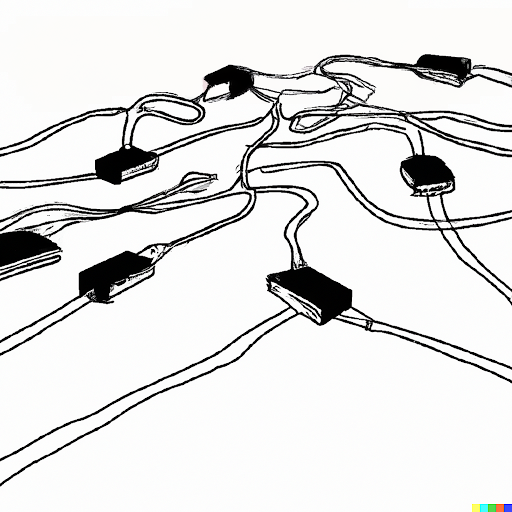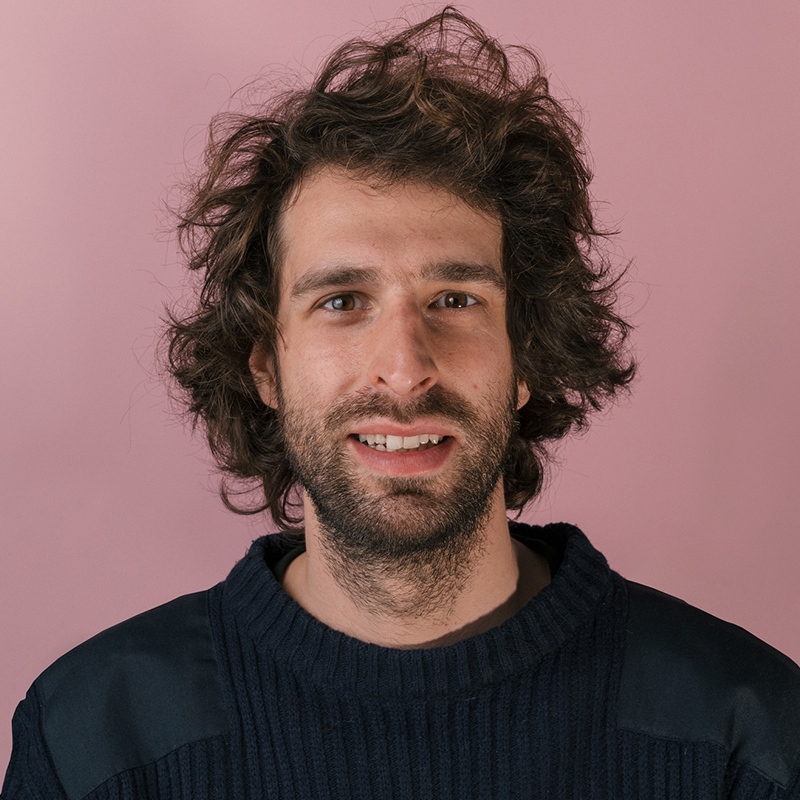Syllabus⇝
This course will examine the ways in which emerging technologies can empower individuals and promote a more coherent society. Through the lens of blockchain, cryptography, and decentralized autonomous organizations (DAOs), students will explore how these technologies can promote collective decision-making and reduce power imbalances on today's digital platforms. By examining the history and development of Bitcoin, Ethereum and Tezos, as well as the emergence of NFTs, students will gain a deeper understanding of the social and ethical implications of emerging technologies.
Learning Objectives⇝
- Understand the potential impact of blockchain and cryptocurrency on society, including the implications for governance, finance, and social systems.
- Explore the principles of cryptography and decentralized technologies, including the role of smart contracts and decentralized autonomous organizations (DAOs).
- Analyze the potential advantages and disadvantages of decentralized systems, including their ability to promote collective decision-making and reduce power imbalances.
- Develop skills in critical thinking and evaluation, as well as an understanding of the social and ethical implications of emerging technologies.
- Apply course concepts to real-world case studies, including examples of decentralized platforms, NFTs, and initiatives that promote collective control.
- Engage in hands-on activities to build skills in blockchain and cryptocurrency, including designing and deploying smart contracts and participating in DAOs.
- Collaborate with peers to develop and present proposals for decentralized systems that address real-world challenges.

Total Duration⇝
The course duration is a total of 12 hours of guided workshop time, spanned along two weeks.
Classes⇝
May 4th – Thursday (10:00 to 13:00), Guillem Camprodón
May 10th – Wednesday (10:00 to 13:00), Mar Canet
May 11th – Thursday (10:00 to 13:00), Mar Canet
May 12th – Friday (10:00 to 13:00), Mar Canet
Structure and Phases⇝
The course will use the MDEF room at P102 and the FabLab Educational room to access tools and other space necessities. A big screen (proyector/tv) will be used for both students and teachers presentations.
The Communication department will provide equipment and team support on the last days of the workshop to asses the student on videography and filmmaking techniques.
Materials Needs⇝
All materials needed for the course will be provided by the faculty. The students are required to bring to the classes their laptop, their own students toolkit and the programming boards given to them at the start of the academic year, other development boards, sensors and actuators will be provided during the workshop.
Requirements for Students⇝
- Softwares to be installed, material, specific knowledge, etc.
- It is required to have a laptop.
- We will use Temple wallet software for Tezos: https://templewallet.com/
Deliverables⇝
Student will develop a project during the workshop that will be presented on Friday and can improve and send a final version 1 week after the workshop,19th May. The project can range from a NFT collection, to a white paper or presentation of an idea for a project using web3 (like a DAO or new cryptocurrency or any other idea that connects to the topics cover in the course).
Students are requested to submit all the material requested by the faculty + their reflections about the seminar on the MDEF repository on GitLab https://mdef.iaac.net/ within a maximum of 1 week after the students’ submission deadline.
Grading Method⇝
The projects submitted will be graded base on:
- Participation in the course: 20%
- Originality idea: 40%
- Creative use of technology: 30%
- Friday Presentation: 10%
Students who submit after the deadlines defined by the faculty and coordination will be subject to penalty and the grade will be automatically lowered. Incomplete submission is considered a missing submission.
Additional Resources⇝
Books⇝
- Artists Re:Thinking The Blockchain. ed. Ruth Catlow, Marc Garrett, Sam Skinner and Nathan Jones published by Torque and Furtherfield (2017) https://torquetorque.net/wp-content/uploads/ArtistsReThinkingTheBlockchain.pdf
Papers⇝
-
NFT Shop and Making Sense of the NFT Art Market. Is NFT a blessing or a curse to digital art? Varvara Guljajeva and Mar Canet Sola https://drive.google.com/file/d/1l1M404OWKQwI6pbADM3MyRHBnEvuYt_Y/view?usp=share_link
-
Bitcoin: A Peer-to-Peer Electronic Cash System. 2008. Satoshi Nakamoto https://www.ussc.gov/sites/default/files/pdf/training/annual-national-training-seminar/2018/Emerging_Tech_Bitcoin_Crypto.pdf
-
Botto: A Decentralized Autonomous Artist 2022 https://neuripscreativityworkshop.github.io/2022/papers/ml4cd2022_paper13.pdf
Articles⇝
-
Are Your NFTs Safe? How to Protect Digital Assets From Disaster https://decrypt.co/138676/are-your-nfts-safe-how-to-protect-digital-assets-from-disaster?amp=1
-
LACMA Has Acquired a Who’s Who of Blockchain Art by Important Generative Artists https://www.artnews.com/art-news/news/lacma-acquires-generative-art-nfts-art-blocks-1234657137/
-
LACMA Acquires a Spate of Generative Art NFTs – ARTnews.com The Centre Pompidou in the age of NFTs https://www.centrepompidou.fr/en/magazine/article/the-centre-pompidou-in-the-age-of-nfts
-
Ahead of Its Reopening, Buffalo AKG Art Museum Rolls Out Its First Online Exhibition Dedicated to NFT Art https://news.artnet.com/market/buffalo-akg-art-museum-feral-file-peer-to-peer-nft-blockchain-art-exhibition-2216427
-
A guide to ecofriendly CryptoArt (NFTs) https://github.com/memo/eco-nft
Interviews⇝
- ‘I Have Sold More Than $30 Million in NFTs’: Iconoclastic Digital Artist Refik Anadol in Conversation With Collector Adam Lindemann https://news.artnet.com/art-world/refik-anadol-adam-lindemann-conversation-2288481
Faculty⇝
Guillem Camprodon is a designer and technologist working in the intersection between emergent technologies and grassroots communities. He is the executive director of Fab Lab Barcelona at the Institute for Advanced Architecture of Catalonia (IAAC), a benchmark in the network of over 2000 Fab Labs and home of the Distributed Design Platform. He has a passion for teaching and is the co-director of the Master on Design For Emergent Futures (MDEF), a collaboration between IAAC and ELISAVA. Previously, he led Smart Citizen, a platform that opposes the traditional top-down Smart City model, empowering communities with tools to understand their environment. As a former research lead, he participated in many European-funded research and innovation projects, such as Making Sense, iSCAPE, GROW Observatory, Organicity, DECODE, ROMI and Reflow.

